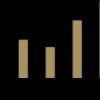
Who doesn’t love freebies? Forex trading education continues to be one of the most controversial topics in the industry.
What’s challenging about this market is that there are no prescribed university courses or degrees to learn how to trade currencies correctly and profitably, mostly because forex is more art than science.
Although traders can have mentors, the skill of speculating in the markets is usually still largely self-taught. Most of the information required to achieve success in the markets is already available on the internet.
Thanks to Google, you can learn and deeply immerse yourself in the world of currencies without setting foot into any brick-and-mortar establishment or paying substantial fees.
It’s far more cost-efficient instead of forking out money to a ‘snake-oil marketer’ who will provide you information copied from Babypips. So, it begs the question, are free forex trading courses any good?
For the most part, these courses are excellent in providing baseline knowledge. Yet, potential traders will need to complete the puzzle themselves to reach that advanced level, mainly from committing thousands of hours reading charts and practicing.
Advantages of free forex trading courses
The greatest benefit of any free forex trading course is no financial commitment is involved, which is especially crucial if you’re a beginner or just cash-strapped. This avenue is much better than just opening a funded account with little experience or knowledge, which usually results in disaster.
Any decent trading course will be well-structured by dividing the necessary content into digestible sections you can learn at your own pace. So, as a student, you don’t need to source the information from different places.
Depending on the course, one can access interesting types of content from videos, market commentary, trade ideas, etc., to provide a more valuable experience.
Disadvantages of free forex trading courses
Let’s look at some of the drawbacks to consider below.
- Possible conflict of interest: There’s a saying that if something is free, you’re the product, and this is true for some free forex educational content. Needless to say, this doesn’t apply to every course on the market.
This premise is prevalent if you’re receiving a course from a relatively unknown individual or company. A common strategy is whereby you sign up to obtain teachings from someone or a group in exchange for funding a live account with an affiliated broker.
There isn’t anything particularly immoral about this plan, though you may be restricted from receiving specific knowledge unless you funded this account. Therefore, there is a hidden cost with getting a free course from some resources.
- Limited knowledge: There’s a stark difference between information and knowledge. While most free educational material is rich in the former, it severely lacks in the latter.
Information is easily accessible on the internet, but knowledge is gained through extensive trial and error that cannot be learned from reading. Unfortunately, most courses, particularly those which are free, cannot replicate the practical experience.
In short, a free course will set students up for the barebones of trading currencies. Yet, reaching that advanced level is more practical and theoretical, a highly time-consuming, physically demanding, and iterative process.
So, what’s the alternative?
When it comes to education in forex, one can travel down two paths; a paid course or seeking a mentor. Both avenues are tricky in their own respects as you will have to assess credibility properly.
- Paid courses: Although a paid course should provide far more in value, you still have the drawbacks mentioned earlier of potential conflict of interest and limited knowledge.
One of the critical methods of vetting any paid course is asking for trading results verified through sites like Myfxbook or FX Blue. This information is a powerful way to decide whether someone or a company has been profitable rather than relying only on hearsay.
Ideally, these results should at least be over a two-year period to honestly assess how traders have performed in good and bad times. You’d also need to understand basic concepts like expectancy, drawdown, risk-to-reward, etc., to see whether what you could learn from this course is conducive to success.
Even if a potential course provider can give you this information, it’s not enough. Like a free course, one would still need to apply what they’ve learned in real-time through dedicated screen time and practice.
There are undoubtedly no shortcuts, particularly if you aim to become a successful self-directed trader rather than a more hands-off approach such as investing in a PAMM or copy trading account.
- Mentors: Mentors are another educational alternative. Unlike a course, a good mentor should have a more personal relationship with their students. This person must be highly knowledgeable and be able to shorten someone’s learning curve drastically.
Debates still exist over whether a new trader can succeed in the markets without a mentor. Having this outlet is undoubtedly beneficial, assuming they have proven their success. Yet, like with courses, even the best mentor doesn’t guarantee anyone consistent profits.
It’s up to the students to apply what they’ve learned from the mentor. Coaching can be beneficial. However, the field of trading is a mix of ‘nature and nurture.’ Some things have to come naturally, while others can be nurtured.
Ultimately, no coach or mentor can hold your hand in continuous live trading, and the student will have to know how to navigate the markets on their own eventually.
Final word
Overall, free forex trading courses are helpful and an excellent way to get your feet wet. There are plenty of well-known resources in this regard, like Babypips, Udemy, Dailyfx, and many others. However, these can only provide the foundation and not the ‘entire house.’
Getting to a sophisticated level boils down to experimental application. Any theoretical framework cannot replicate the psychological aspect of trading, which is one of the most challenging concepts to grasp.
No course can teach you how to be patient, control emotions, or maintain discipline in the face of constant temptation. These are qualities that can take several years to master but are necessary.
This means anyone serious about trading should appreciate it’s a grueling career, and there are no shortcuts to success.








Leave a Reply